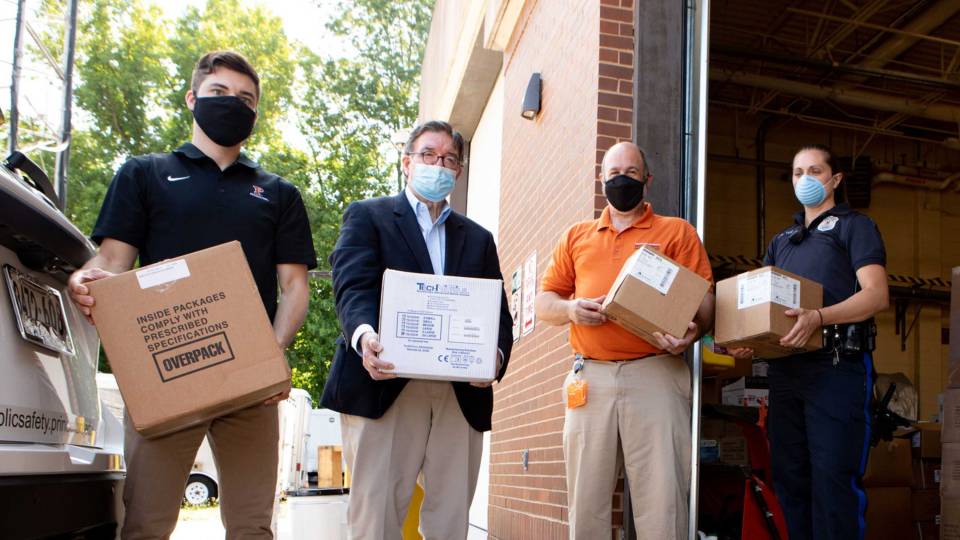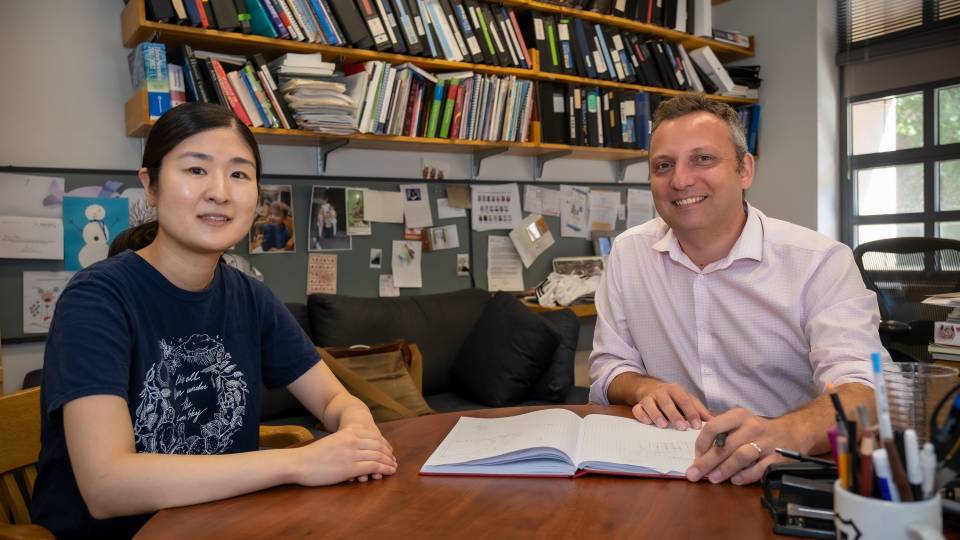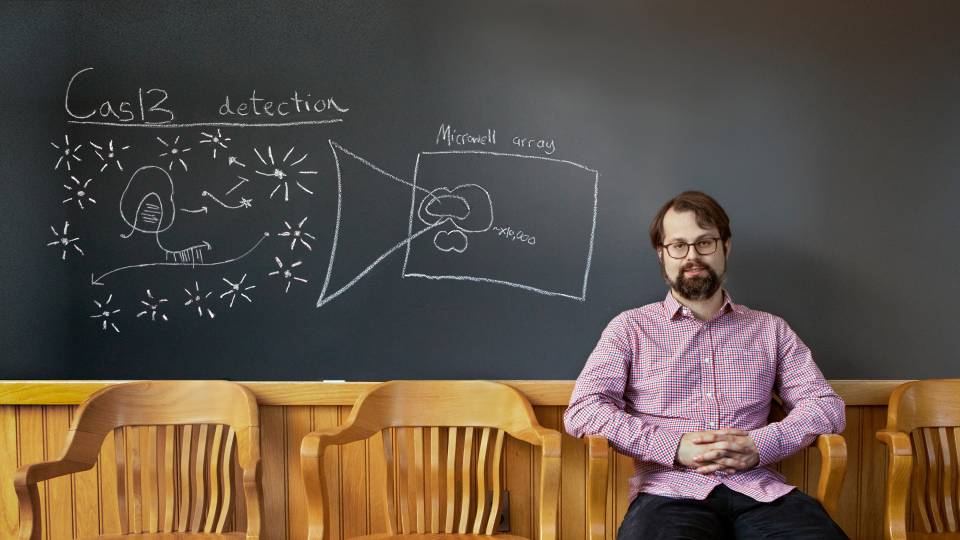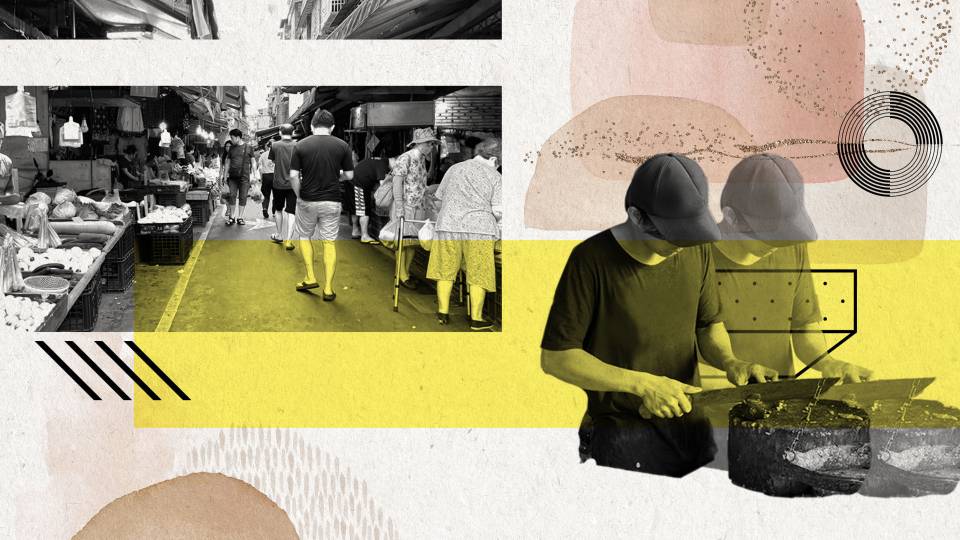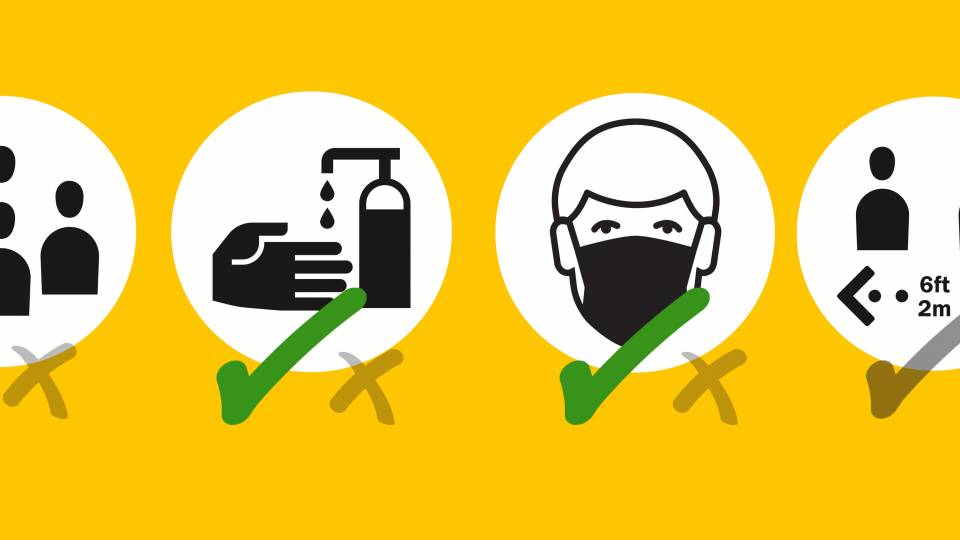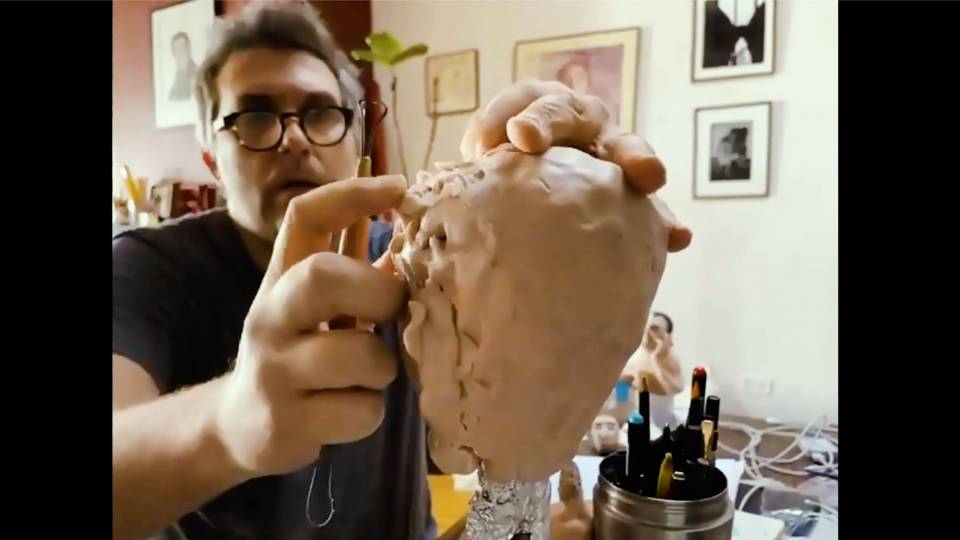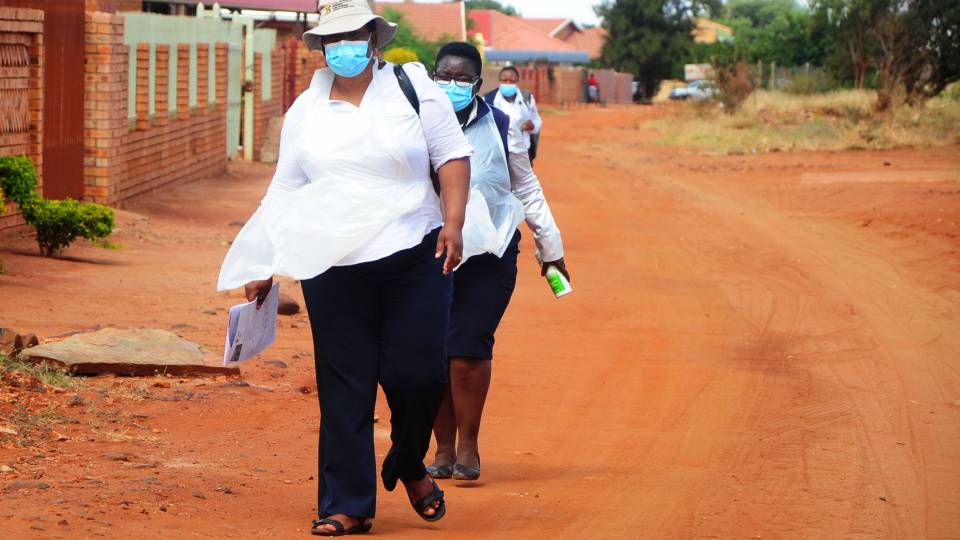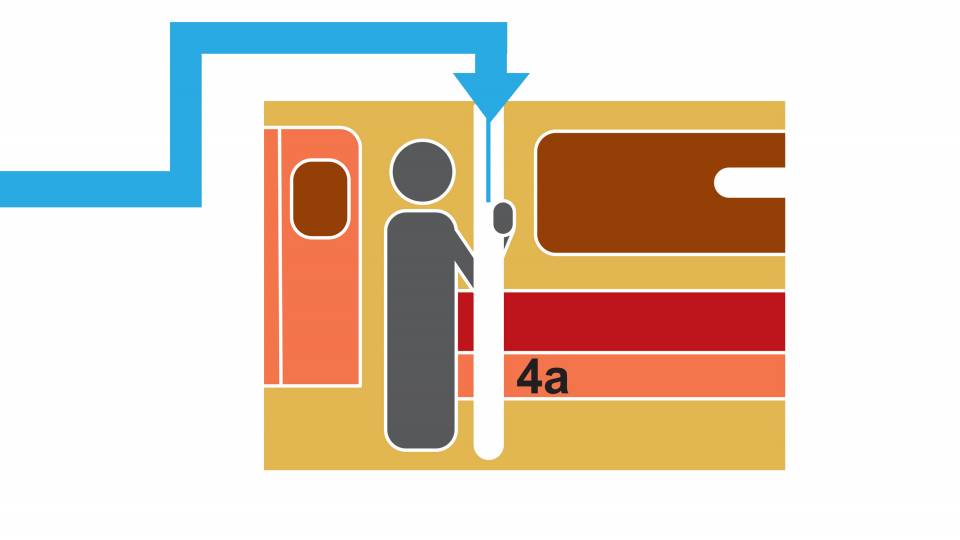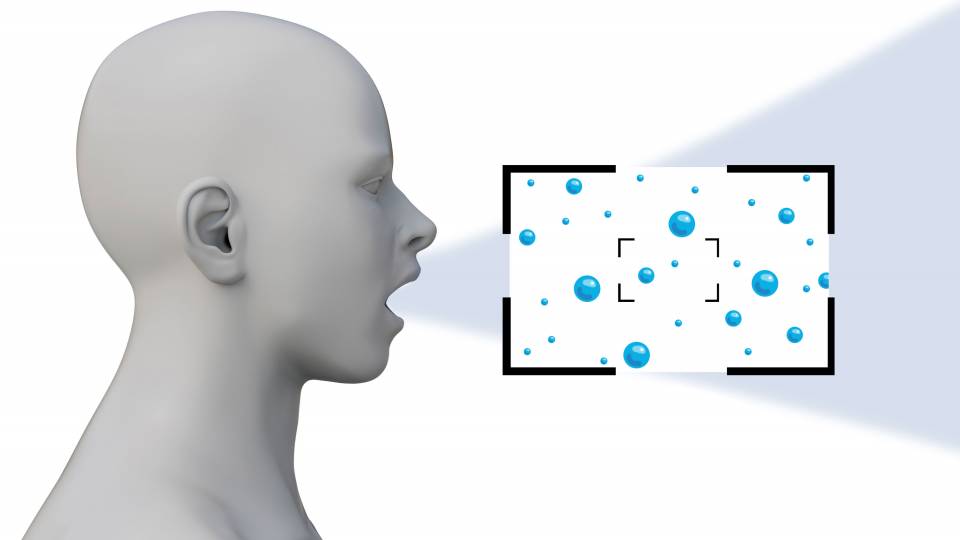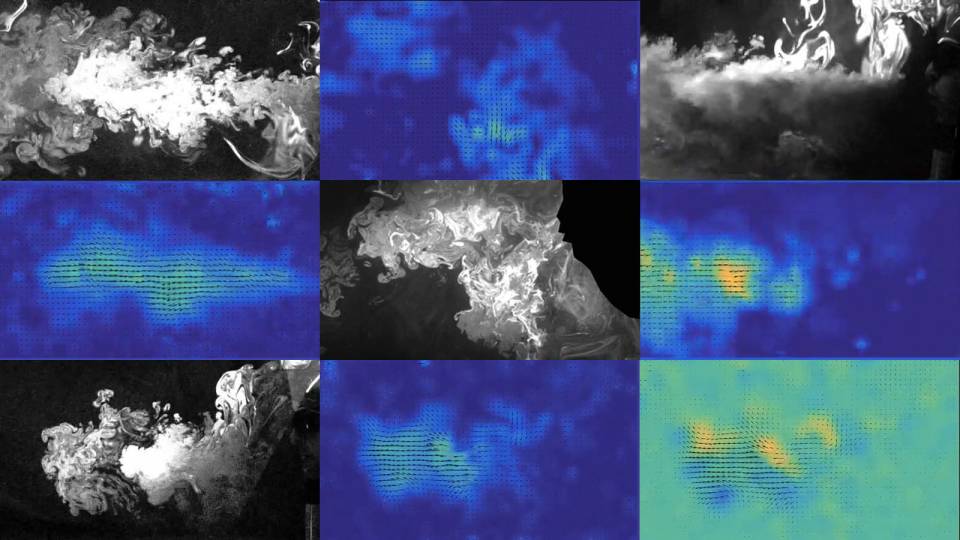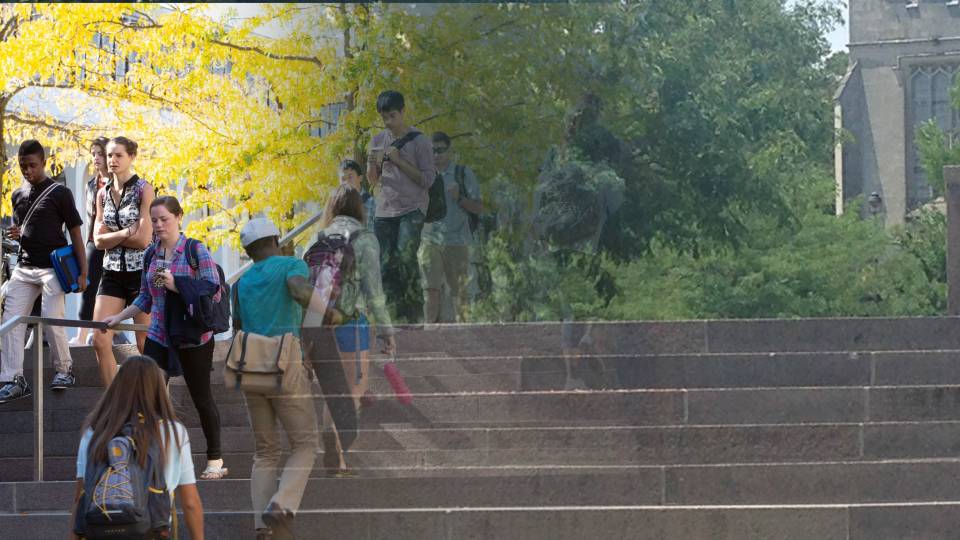Princeton University has announced multiple new funding initiatives to support a wide range of faculty and student research and service projects related to the pandemic and racial injustice. Dozens of grants have already been awarded for projects starting this summer and applications for others are underway.
In response to the current crises, and underlying societal challenges, facing our country and the world, Princeton University has announced an initial series of new funding initiatives. These opportunities represent the first, immediate steps in an ongoing effort to bring to bear the research, teaching, and service-focused mission of the University on the critical issues raised by the global pandemic and racial injustice. Additional steps will be announced in the coming weeks and months.
The funding will support:
- The development of innovative teaching methods;
- New courses focused on racial injustice and COVID-related community problems;
- Service projects to address inequalities and injustices; and
- Digital research to examine issues related to cities, COVID-19 and race.
250th Fund for Innovation in Undergraduate Education
The Office of the Dean of the College has announced a special call for proposals for the 250th Fund for Innovation in Undergraduate Education(Link is external), the University’s principal resource for supporting curricular innovation.
For this rapid cycle of funding, and with the support of the Office of Institutional Equity and Diversity and the Office of Information Technology, the 250th Fund is accepting proposals from faculty to accomplish one (or more) of the following:
- Design or significantly redesign a fall semester course for an online environment
- Design a “Princeton Challenge”: a credit-bearing, research-intensive, project-focused experience focused on COVID-19 or other community problems, to offer in fall 2020
- Design a fall semester course that addresses systemic racism, racial injustice, anti-racism, and/or the history of civil rights or anti-racist movements
‘Addressing Racism’ funding for faculty-student collaborations
The Office of the Dean of the Faculty has announced a funding opportunity for faculty-led projects that engage undergraduate students in research or scholarly work that addresses some aspect of racism, including systemic racism, racial injustice or anti-racism. Proposals may be submitted from all faculty, including lecturers and instructors. Due to the significant disruption of employment opportunities for University students from COVID-19, student involvement in the projects is to be encouraged as a critical component.
Examples of projects could include how public policy can address systemic racism, the effects of race on poverty levels, or an art project representing racial injustice. The proposals should give a brief description (no more than two pages) of the project, including rationale and potential impact, a budget, and the faculty and (where known) the students involved.
This funding will be available immediately, and proposals will be accepted now through Aug. 31. For more information on preparing and submitting proposals, visit the Office of the Dean of the Faculty website(Link is external).
Pace Center’s RISE grant initiative
In response to persistent, recent and continuing acts of systemic racism, the John H. Pace, Jr. ’39 Center for Civic Engagement(Link is external) is launching Princeton RISE(Link is external) (Recognizing Inequities and Standing for Equality), a grant initiative to address inequalities and injustices. Now through June 22, all matriculated Princeton University undergraduate and graduate students can apply to receive a $1,500 grant to:
- Have an opportunity to listen to and work with communities
- Explore and advocate for racial justice broadly
- Learn about societal inequities in areas such as health, criminal justice and education
- Make a substantive contribution to the research and mission of campus and community partners
With so many students having summer internships canceled due to COVID-19, this is an opportunity for students to learn and engage in meaningful and timely work this summer. The Princeton RISE grant commitment is structured as follows:
- Projects will be conducted in collaboration with partners (either campus partners or community partners), and must be for at least 100 hours of engagement over a period of three to six weeks.
- All projects must be either entirely remote or demonstrate robust mitigation of risk in compliance with local ordinances and public health guidelines.
- Selected students will receive a $1,500 grant, mentorship from staff and peers, access to skills-based trainings, and structured reflection.
The Pace Center is also soliciting project placements for students to address racial justice through a part-time internship or project this summer in the Princeton-Trenton area, across the United States, and internationally from community partners, faculty, staff and alumni.
For more information and application information, visit the Pace Center website(Link is external).
Princeton Mellon Initiative in Architecture, Urbanism and the Humanities summer funding
The Princeton Mellon Initiative in Architecture, Urbanism and the Humanities(Link is external), in conjunction with several campus partners, has awarded summer digital research grants(Link is external) that deal directly with the urban experience under COVID-19, including research that examines mobility, migration and cities during the pandemic, as well as the experience of lockdown and social distancing. Another concentration is in race, ethnicity and equity in the city: inequality and development in the Global South, black entrepreneurship, systemic discrimination in America’s urban centers, structural violence in Philadelphia, poverty and racial segregation. Many of the grants focus on ethnographic research and the study of place and space, in all parts of the globe.
The call for proposals was developed in recognition of the fact that student internships, employment and research travel were curtailed due to COVID-19. The research grants will support 71 faculty-student collaborations, and independent graduate and undergraduate student projects. Twenty-three departments and programs are represented by award recipients.
Given the number of independent research proposals and the convergence of methods exploration, the Princeton-Mellon Initiative will convene several thematic working groups and methods workshops during the summer.
To fund this research the Princeton-Mellon Initiative repurposed its spring budget and raised support from campus partners. The summer grants are made possible by the Andrew W. Mellon Foundation, the Metropolis Project of Princeton University, the Princeton Institute for International and Regional Studies, the Department of Sociology, the Department of Anthropology, and the Princeton Environmental Institute.
For a list of grant projects, visit the Mellon Initiative website(Link is external).

